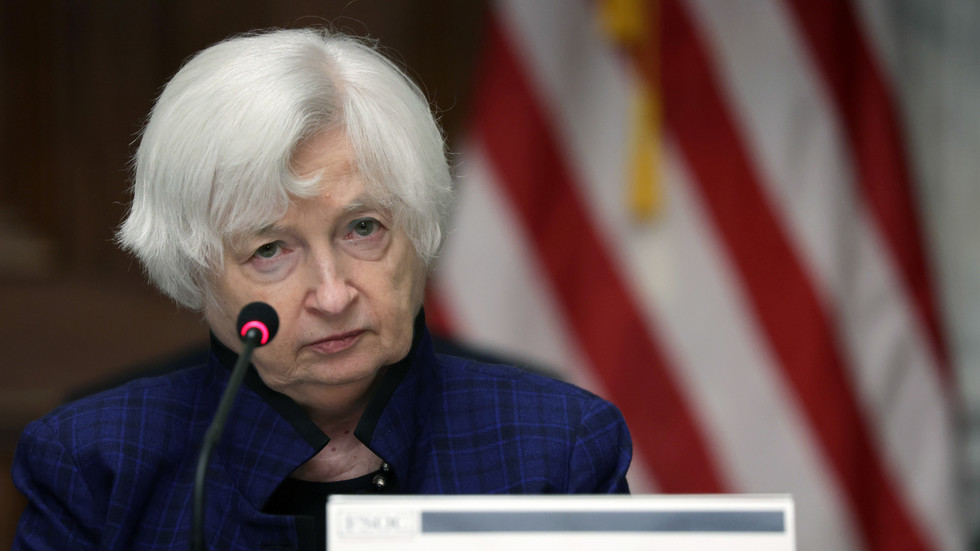
Janet Yellen has warned that Washington may run out of cash as early as June 1

© Alex Wong / Getty Images
US Treasury Secretary Janet Yellen has doubled down on her warnings about the nation’s debt ceiling, saying the federal government will run out of money to pay its bills as soon as June 1 unless Congress enables it to increase borrowings.
“It is highly likely that Treasury will no longer be able to satisfy all of the government’s obligations if Congress has not acted to raise or suspend the debt limit by early June, and potentially as early as June 1,” Yellen said on Monday in a letter to US House Speaker Kevin McCarthy.
Yellen has repeatedly warned that Washington is headed for default on its financial obligations, barring additional borrowing authority from lawmakers, after the national debt soared to its $31.4 trillion statutory limit. The US Treasury is running out of cash after the national debt reached the cap in January.
“If Congress fails to increase the debt limit, it would cause severe hardship to American families, harm our global leadership position and raise questions about our ability to defend our national security interests,” Yellen told McCarthy, a California Republican.

The Treasury secretary said it’s impossible to predict the exact date when the money will run out. The government will likely have to start choosing which bills go unpaid by June 15, if not sooner, Yellen said on Sunday in an NBC News interview. Major obligations include interest payments on existing borrowings, Social Security payments to elderly and disabled Americans, bills from defense contractors, and the paychecks of US military personnel and other government employees.
The US government has a projected deficit of $1.4 trillion this year, according to the Congressional Budget Office, meaning its outlays exceed revenue by around $117 billion each month. The nation ran up $6.2 trillion in debt in its first 226 years of existence, then saw the total balloon fivefold in just the past two decades. Congress has raised borrowing limits 78 times since 1960.
McCarthy and President Joe Biden resumed talks on Monday, but so far failed to resolve the debt impasse. Republicans, who control the House of Representatives, have proposed increasing the debt cap by $1.5 trillion while reducing growth in federal spending to address the root cause of the crisis. The president has countered that he’s unwilling to negotiate on the debt ceiling, but he’s open to having a separate conversation about spending once the borrowing cap is raised.
Past political clashes over the debt ceiling have shown that waiting until the last minute to reach a settlement can rattle markets, reduce consumer confidence, raise borrowing costs and threaten the nation’s credit rating, Yellen said in Monday’s letter. In fact, the Treasury’s debt costs have already increased for bonds maturing in June.
“I continue to urge Congress to protect the full faith and credit of the United States by acting as soon as possible,” Yellen said.




